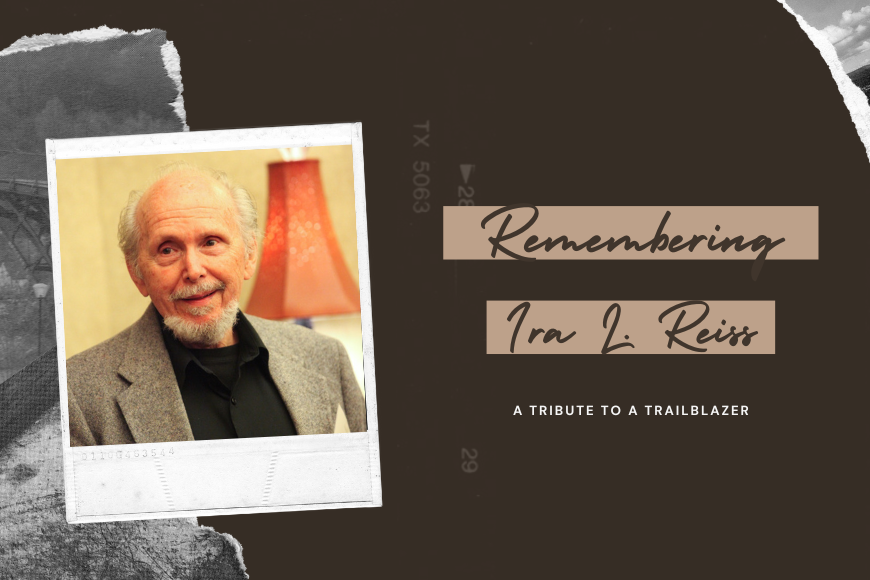Tribute to a Trailblazer: Professor Emeritus Ira L. Reiss
UMN Sociology Professor Emeritus Ira L. Reiss, a trailblazing pioneer of modern sex research, passed away on January 9, 2024 at the age of 98.
Ira L. Reiss served in WW2 and then earned his PhD from The Pennsylvania State University in 1953. He taught at Bowdoin College, William and Mary College, Bard College, and the University of Iowa and then in 1969 he came to the University of Minnesota's Sociology Department and stayed there until his retirement in 1996. At the University of Minnesota Reiss also served as the director of the university’s Family Study Center.
His areas of research included sexuality, gender roles, and family. He established his reputation as a major figure in the social science study of human sexuality in his writings on premarital sexuality. Starting in the late 1950s, he developed a scale that measured a person's degree of premarital sexual permissiveness. The scale became one of the most popular scales in the country used in premarital sexual research.
In 1971, he published his textbook on the family (The Family System in America) and it became one of the best selling texts in the country and went into four editions. His textbook brought in premarital, marital, and extramarital sexuality and homosexual and heterosexual aspects as well as love and gender factors, much more than any of the other textbooks in the family field had done.
In 2006, Reiss published a memoir (An Insider's View of Sexual Science since Kinsey) in which he informally discussed the sexual science research and theory work that he had done over the years and integrated that with accounts of his interactions with other key sexologists in this field. This book presented Reiss's insider's view of sexual science and covered the sexual science field in the 50 years since the death of Kinsey in 1956.
He won a number of awards for his research and theory efforts and wrote 14 books, four monographs, and over 150 professional papers, many of which you can access via the Reiss Collection at the Kinsey Institute.



